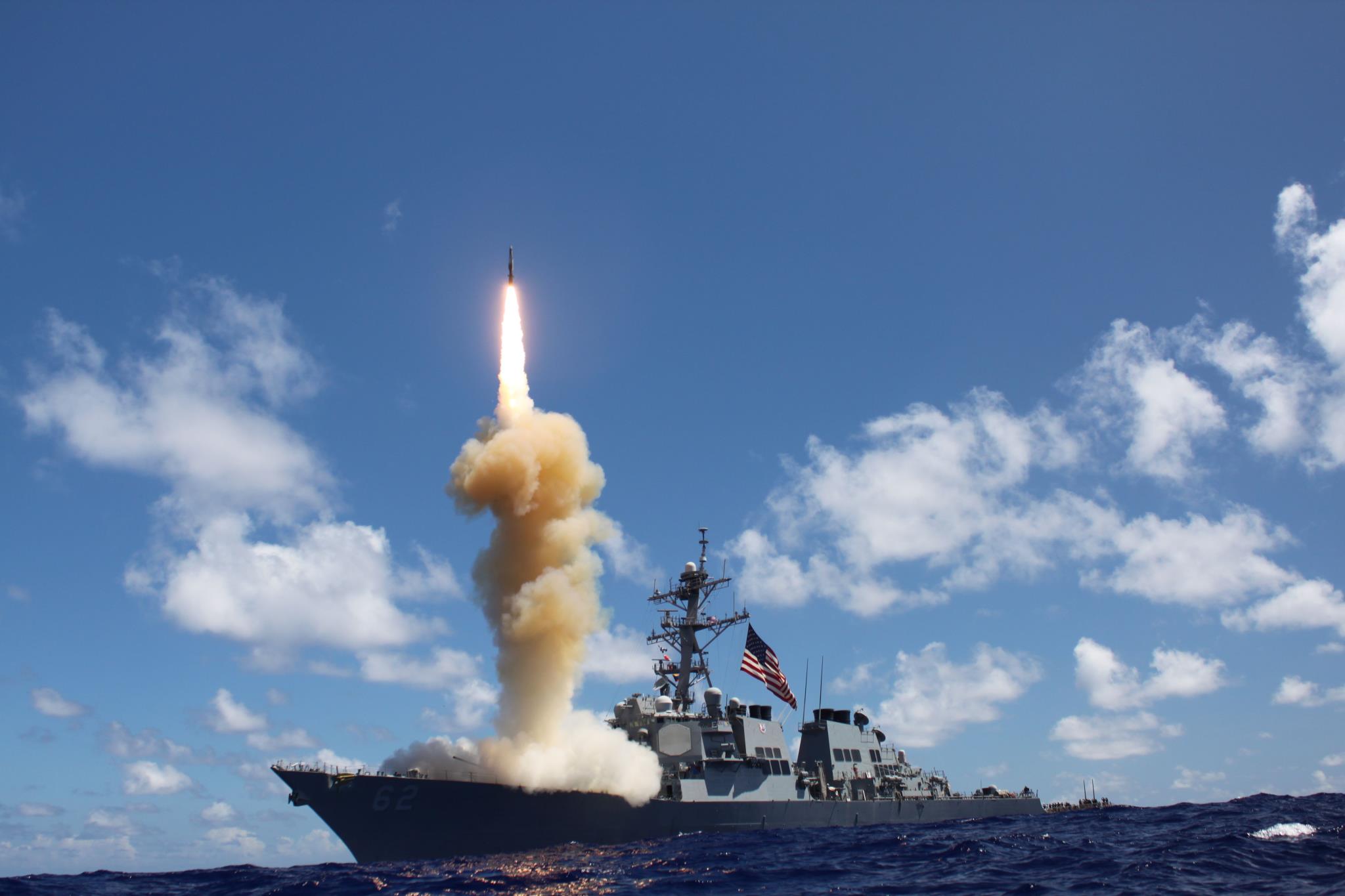Last week a senior Pentagon official accused Iran of having sabotaged four oil tankers in the Gulf of Oman on May 12 and of firing a rocket into Baghdad’s Green Zone on May 19. Iran executed these events, he said, either directly or through regional “proxies.”
But instead of creating sensational headlines, the briefing by Vice Adm. Michael Gilday, the director of the Joint Staff, was a flop, because it was clear to reporters covering it that he could not cite a single fact to back it up.
The story got only the most cursory coverage in major news outlets, all of which buried Gilday’s accusation deep in stories about the announced deployment of 1,500 more US troops to the Middle East. Relatively few readers would even have noticed Gilday’s inflammatory claims.
Nevertheless, the briefing raises a serious question whether National Security Adviser John Bolton intended to use the new accusation against Iran stoke a war crisis — much as Vice President Dick Cheney, in another era, used the argument that Iraq had purchased aluminum tubes for a covert nuclear weapons program to justify the invasion of Iraq. A careful examination of Gilday’s accusations make clear that they do not even claim to be based on any intelligence assessment.
Gilday was apparently chosen to give a non-political patina and the authority of the US military to an accusation that clearly originated with Bolton and Secretary of State Mike Pompeo. In a prepared statement, Gilday declared, “In the recent past, Iranian leaders have publicly threatened to close the Strait of Hormuz. They have backed up those threats with actions, posturing their forces in an effort to intimidate the movement of international trade and global energy sources.”
Gilday went on to cite “[r]ecent actions by the Iranian Revolutionary Guard Corps, to include attacks against foreign tankers in Fujairah and the attempted covert deployment of modified dhows capable of launching cruise missiles,” calling them “all part of a dangerous and escalatory strategy by Iran to threaten global trade and to destabilize the region.”
During questions and answers, Gilday added that “we believe with a high degree of confidence that this stems back to the leadership of Iran at the highest levels and that all of the attacks that I mentioned have been attributed to Iran through their proxies or their forces.”
When pressed by reporters, however, Gilday simply repeated variants of the argument he had presented in his prepared statement. When a reporter pressed him for evidence to support the accusation, he responded, “So the Iranians said they were going to close the Strait of Hormuz. The Iranians struck those — those tankers. The Iranians struck the — that pipeline facility in Saudi Arabia through their proxies in Yemen. We know that they’re tied directly to the proxies in Iraq that launched the rocket [in Baghdad’s Green Zone].”
Then, when asked by a persistent reporter, “What do you have to back up your case?” Gilday repeated yet again that the Iranians “have said publicly they were going to do things. We learned more through intelligence reporting they have acted upon those threats and they’ve actually — they’ve actually attacked.”
Gilday was thus deploying a crude syllogistic argument (A is true, and B is logically related to A, so B must be true), as the entire basis for the accusation against Iran regarding these two incidents.
But his syllogism was based on a false premise. What a senior Iranian official actually said on April 22 was not that Iran intended to close the Strait of Hormuz unilaterally, but that it would do so in response to any effort to prevent Iran from using it. Alireza Tangsiri, head of the Revolutionary Guard Corps naval force, declared on April 22, “According to international law, the Strait of Hormuz is a marine passageway, and if we are barred from using it, we will shut it down.”
Fair Use Excerpt. Read the rest here.


